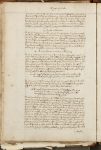Image 120, fourth book, folio 61b, receipts 17 (contd) to 21
| The fourthe booke. | ||||
| chop them well with a knife, for they will not grinde for fat, & then stampe | ||||
| them with .lb. j of olde swynes greace, & temper them well together untill | ||||
| you cannot knowe the one from the other: This of all other is the moste | ||||
| pretious playster for sore pappes* that rot, for it matures, mundifyeth*, | ||||
| & by the poores mitigateth the payne, & not onelye in paps, but in harde | ||||
| botches* & byles* under ye throate & armeholes*, bloudewarme* layd thereto. | ||||
| 18. A good mundicative*. | ||||
| Take smallage*, wormewoode*, of each .m. j. of planten* .m. 3. sage .9. crops*, | ||||
| grind them small, & strayne out the iuice, & put thereunto barrowe hogges* | ||||
| greace, & three yolkes of egges rawe, 2. spoonefulls of honye, 2. spoonfuls | ||||
| of wheate flower tempered* all together untyll you cannot know the one | ||||
| from the other, lay heereof unto a wounde, & doubte not to let it lye two | ||||
| dayes unremoved, for it will mundifie* & heale suspecte woundes that | ||||
| woulde fall into fester: as ulcus*, & cankers. | ||||
| 19. An implaister* for rankelinge* in all places. | ||||
| Take lynseede & beat it into a powder with the powder of fenicreke* .an. | ||||
| & then take the yelkes of egges harde sodden* by themselves, & two spoonefuls | ||||
| of the powder, take five yelkes, but grinde the yelkes by themselves with | ||||
| swines greace untill that they be like past, then seeth the powder & three | ||||
| lillye rootes in sweete milke untill that they waxe thicke, & then grinde | ||||
| them all together with a litle honye, & laye this plaister to every straung* | ||||
| bolnynge* or swellinge .i. sufflacion*, or unto an olde blacke wounde, for | ||||
| it is of greate virtue, & a stronge sanative*. | ||||
| 20. An implaister for synewes* yt are shrunken, hard, & stiffe | ||||
| knotted, or shorte: & for swellinge in ye necke behind. | ||||
| Take water cresses, camomyll, of eache .m. j. grind them small, and | ||||
| frye them with wheate meale, & honye: & as hotte |
||||
| suffered, laye it to the griefe*: et sanabitur Deo volente*. | ||||
| 21. To make Unguentum viridum*, wch is good for all manner | ||||
| woundes, & it will put away deade fleshe, and make | ||||
| newe for to growe clear & fayre:. | ||||
| Take the rootes of celydonye*,of aleluia**, both the leafe & the roote, & the | ||||
| roote & leaves of foolefoote*, the leaves of scabias, & the leaves of flos | ||||
| campi, otherwise called red campions, of each one .m.j. and wash them | ||||
| cleane, & stampe them, and put to them .lb. j. of weathers* tallowe, & .lb. j. | ||||
| of oyle ollyffe*, & meddle* them well together in a morter, & then put | ||||
| them into an earthen pot, & close it well above, so that no ayre goe out: | ||||
| & set it in a moist place, & let it stand there nine dayes, and after that | ||||
| take it out of the pot,& put it into a fayre panne, & set it over a charre | ||||
| coale* fire, & frye it & stirre it well, with a spader** or sclyse of iron, and | ||||
| when it is righte hot, strayne it through a clothe, & then set it over the | ||||
| fire agayne, & put thereto halfe a quarterne* of meede** wax broken | ||||
| in small pieces, & when that is molten put thereto ℥ i. of frankencens | ||||
| in powders ℥ ss. of masticke* powdred, & ʒ ss. of verdegres* small poudred | ||||
| & sarsed* |
Abbreviations are underlined like this Wm. and the expansion may be seen by moving the cursor over it.
| An entry outlined like this has a note which may be seen by hovering over it. |
Transcribed by ALB and RMS
